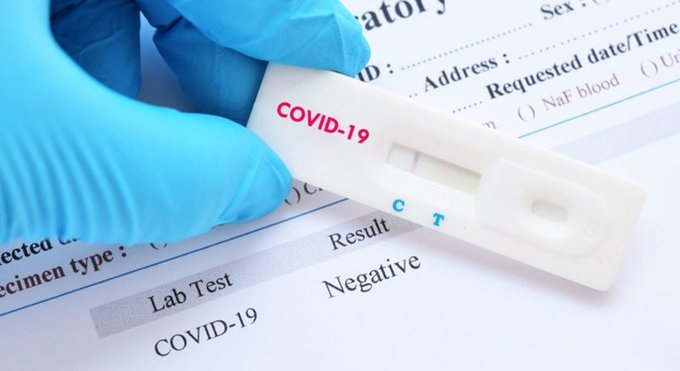While the world started facing a shortage of COVID-19 test kits, over 100 Chinese companies stepped out as the suppliers of medical equipment and test kits to several countries including US.
Last week, after one of the hard-hit country Spain stopped using rapid diagnostic tests from a Shenzhen-based company, University of Washington School of Medicine which had airlifted tens of thousands of Coronavirus testing kits from Shanghai factory, has decided to halt, at least temporarily, the use of the kits after they showed signs of contamination.
Chinese COVID -19 testing kits

A Seattle importer communicated with a business associate in China who knew a Chinese doctor from a hard-hit province to secure testing kits from a Shanghai factory. As per the reports, the importer used an Amazon-chartered plane to airlift the testing kits and University of Washington School of Medicine allocated US$125,000 to purchase the kits. But the university halted the use of these Coronavirus testing kits from Lingen Precision Medical Products after some of them turned out to be faulty.
As reported by the South China Morning Post, Geoff Baird, the interim chair of the University of Washington Department of Laboratory Medicine, who was part of the group that has secured the newly imported Chinese kits, said, "I can't say I'm not disappointed."
He came to know about the issue with these testing kits on April 16 after one of his colleagues reported that some of the liquid in vials he had sent appeared to have changed in colour. After receiving the report, Baird went to where UW Medicine is storing some testing kits and started "tearing through boxes".
He noticed that while most of the vials appeared to be fine, the liquid in a small percentage of them had turned to cloudy or orange or yellow colour, rather than hot pink, that is an indication of bacterial growth. Later, laboratory testing confirmed that it was a bacteria called Stenotrophomonas maltophilia which caused the contamination in those samples.
As per Baird, after further examination, he does not believe that bacterial growth likely affected specimens that have already been analysed. He also said that there is no need to conduct retests. He explained that when scientists added known samples of the novel Coronavirus to the contaminated specimen-preserving liquid and compared it against uncontaminated liquid, they found "no difference", but Baird has paused some additional orders.
Coronavirus medical supplies from China

The Seattle businesswoman who helped secure the swabs through Chinese business contacts, Anita Nadelson said the Chinese supplier had said it would refund the investment. She added that "They're working diligently to identify and cure the issue. We vetted these as best we could. It's an unexpected turn on both sides."
As per Baird, he gave 20,000 test kits to Public Health- Seattle & King County and another 15,000 to the state's public health lab. After the news about the contamination, the Public Health–Seattle & King County said the officials reached out immediately to its local partners, asking them to suspend use. Their spokesperson, James Apa said that "Around 5,000 of the 20,000 they gave us had been distributed by us, and approximately 300 had been used."
It should be mentioned that despite travel restrictions and the current Coronavirus crisis in Europe, the European Union gave Chinese firms access to its markets. But most of these products exported in Europe were not licensed for sale in China. It was reported that the kits sent to Spain found to give a 30 percent detection rate which is lower than 80 perecent that manufacturers had promised.
Earlier, reports also revealed that the Coronavirus test kits sent to the Czech Republic from China were substandard. Dutch officials also claimed that the 600,000 Chinese face-masks did not meet the quality standards. Later, ambassador of Chinese Embassy in the Netherlands, Xu Hong said in March that "It is normal to expect some problems during our cooperation, but we hope this can be resolved in an objective manner and not become politicized."









